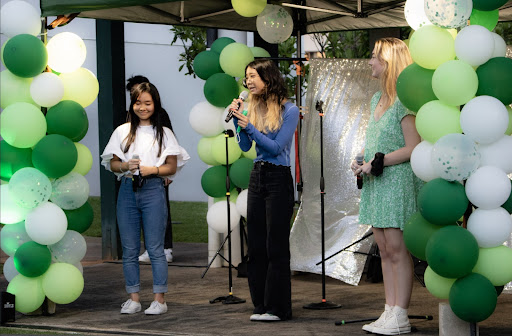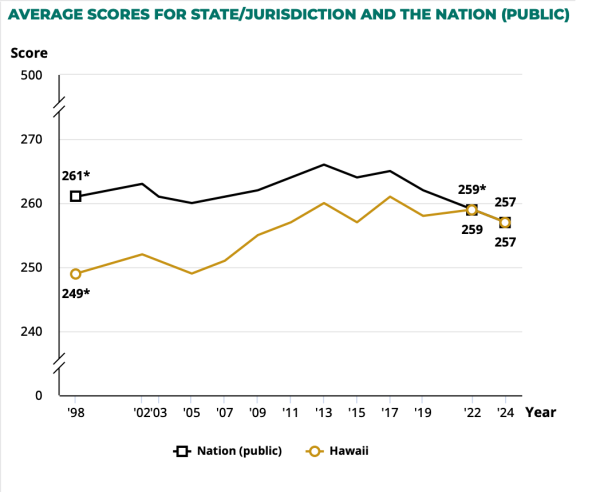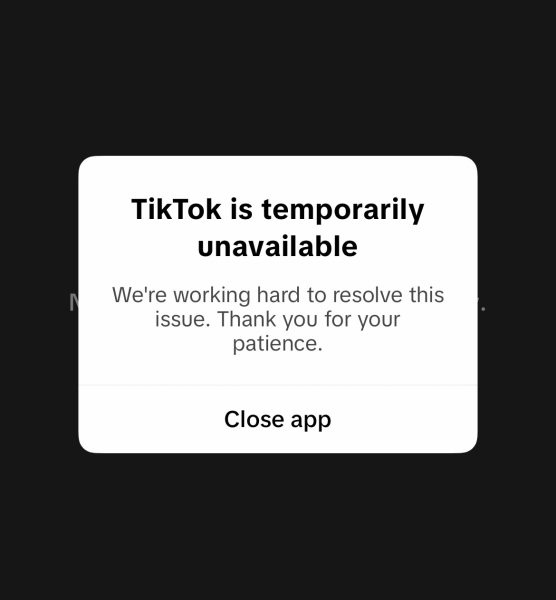A new year with adjustments to in-person concerts

The Welcome Program made its return on Sept. 17, 2021. It was held in the middle school quad rather than the traditional Bakken Auditorium. Despite these changes students and performers were able to enjoy the event.
The Mid-Pacific Welcome Program debuted on Sept. 17, 2021, after a cancellation in 2020 due to the COVID-19 pandemic.
Many of last year’s concerts were cancelled or heavily altered in the wake of the pandemic. Although altered, events like the Welcome Program were able to resume this year.
2020’s Welcome Program was rebranded as The 100 Days Program, which was a conglomeration of the Welcome Program and Aloha Program, and took place in February. However, this year’s program resumed the tradition of being solely the Welcome Program, with major modifications.
Alison Beste, senior class adviser and planner of the event, addressed the complications of planning the Welcome Program.
“With the help of our senior officers, we started planning the Welcome Program this past summer. Numerous logistics were considered, especially considering the uncertainty of COVID and the need to host a safe event,” Beste said in an email interview.
For the duration of the event, all audience members and performers were required to wear masks, except for singers. Attendance for the concert was limited to seniors, and social distancing stayed in effect.
After two weeks, Mid-Pacific’s President Dr. Paul Turnbull did not send out an email, indicating that no transmission of COVID-19 occurred at the Welcome Program.
With the addition of several safety protocols, this year’s Welcome Program was different, but still enjoyable for audiences and performers even under the modified conditions.
“I actually enjoyed it being outside, it was nice and breezy,” said Kaitlyn Dote, a senior audience member who attended the Welcome Program.
As a performer, Youngje Park, a sophomore cello player at the Welcome Program, appreciated the concert atmosphere and the opportunity to perform.
“The atmosphere is more welcoming and more enjoyable in person,” Park said.
For musicians like Park, this year’s Welcome Program was especially meaningful.
“This Welcome Program was very special to us because it was our first opportunity to present our progress [during the pandemic],” Park said.
The work of the performers was appreciated by the audience and served as a reminder for the school’s talent.
“It reminds us that we have a school of the arts, and that we have students that are very talented, so it’s nice to have that reminder every once in a while,” Dote said.
The Welcome Program demonstrated how a concert could be enjoyed safely. For groups like band and orchestra, however, it’s another story.
The main challenge posed to these groups was how to balance safety and sound quality. Last year’s orchestra performed in the gymnasium, while the band performed on the softball field. No transmission was detected at these concerts, but the acoustics were compromised.
“When you’re outside, there’s no room space to help you generate or reverberate the sound, then it does only negative things for your group. The same thing with orchestra, the gymnasium wasn’t built for music performances. The acoustics there are not ideal, it’s very boomy, there’s a lot of hard surfaces so everything bounces around,” said Jeremy Lawi, Mid-Pacific’s band director.
Administration and teachers have been hoping to see some changes in upcoming performances this year. The theater department performed “Julius Caesar,” an in-person performance as opposed to their online play in 2020. The hula department also eased restrictions as attendance was open to the public, compared to last year’s two-person-per-student restriction.
Even with the surge in Mid-Pacific performances, the reality remains the same, with the primary concern of the school being COVID safety, so concerts will be modified for better or for worse.
“It’s not gonna sound ideal, but we don’t really live in an ideal world right now anyways. We do what we can,” said Lawi.
In the tumultuous era of COVID-19, students and faculty agree that online performances will never replicate the experience of live ones.
“Live performance there’s synergy, everyone’s in the moment making music together and this feeling that anything can happen, things are live and in the moment, it’s an experience,” said Lawi.





